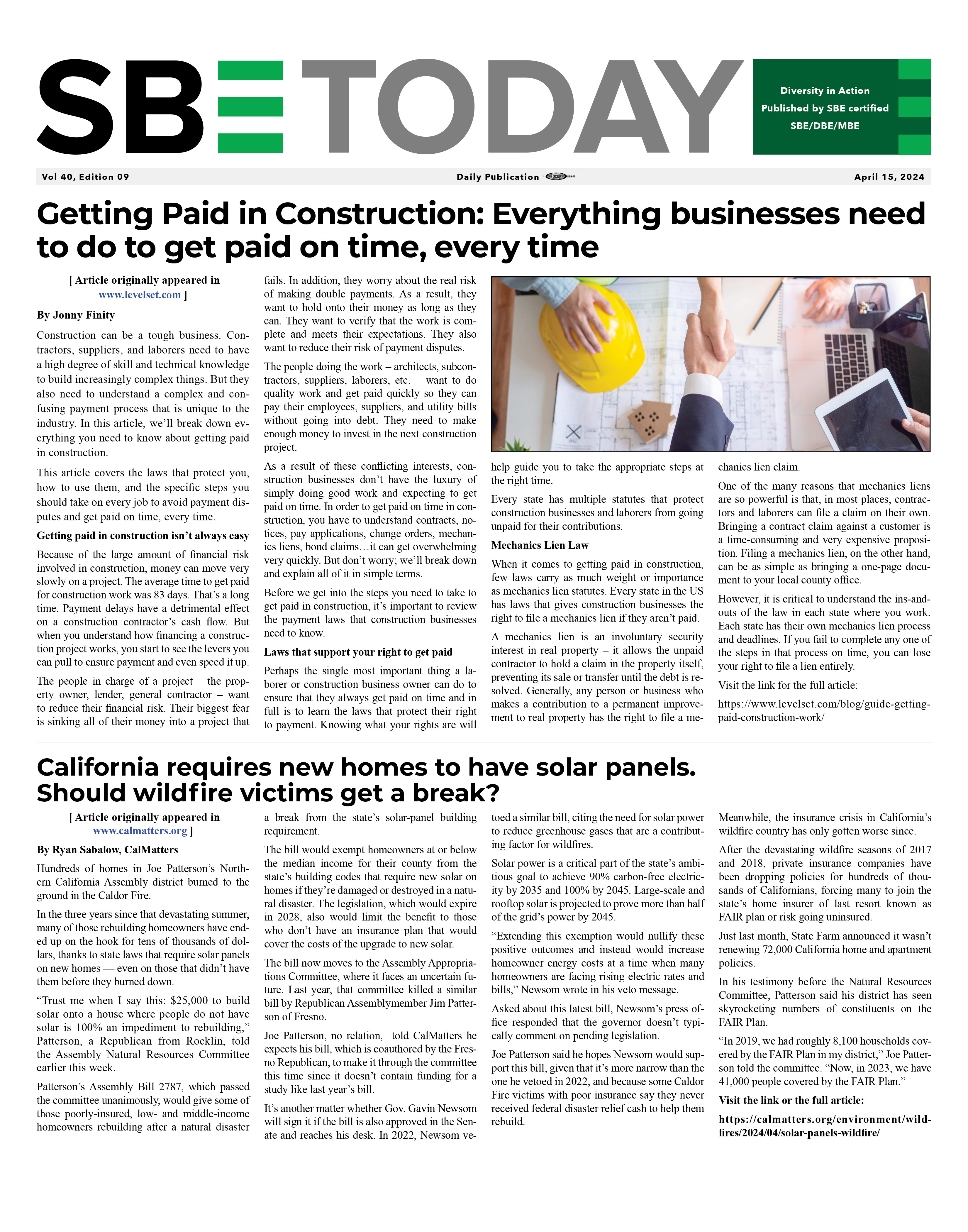|
|
You Have a Business Idea, What's Next?
11/26/2018
By Tim Berry, Guest Blogger,
Sure, the obvious is that you develop your business plan. But how does that really happen in practice? How do you develop that initial plan? Let’s look at some of the steps you should take. Keep in mind that these steps are not sequential. In the real world, with a real new business, you are going to take several actions in rapid order, enmeshed one with the other, almost at the same time. Think of them as simultaneous, not sequential. Start the planningFrom the moment you have the idea, you are developing the plan. It starts with just bullet points and some preliminary forecasts, and you fill in details — the rest of this post, for example — as you make progress. Your business plan is never done. You are revising it regularly from now through launch, through emergence, growth, and stability. If your business plan is done, your business is done. Is there really a market?I can’t imagine how one can come up with a business idea without thinking immediately about the big question: Is there really a market for it? Do people want what I intend to sell? Enough people? At a price high enough to allow you to cover costs and expenses and sustain the business? You must be prepared to abandon the idea if the market is not big enough. Sometimes the answer is market research. Sometimes it’s years of experience in the business, so you’re sure you know. And sometimes it’s launching with a minimum viable product. All businesses are different. How you perform formal research depends on who you are, where you are, and the nature of your idea. What resources do you have? There’s primary research like interviews, questionnaires and surveys; and secondary research like published forecasts, expert opinions, and industry data. Some entrepreneurs have money to spend on research, while some do it themselves. In the real world, many entrepreneurs already know that market before the idea hits them. They might be working in a similar business and going out on their own. They might have an offshoot of an existing business, some new variation based on what they already know. Much of what you read about this topic implies it’s not a plan without market research; but the truth is, you have to know your market. You might already. Many new businesses start with the first few customers or clients. Constant ongoing reviewYou may hit a crossroads, or key decision point. Sometimes the sad truth is that there isn’t a big enough market. In the real world you never have enough data to really know, for sure until you do it. But you are always asking, always testing, even after launch. And, all the time, as you develop a plan, that question continues. Is there a market? You live with it. Recruit the teamAs you develop the idea you have to think about what kind of a team it will take. Successful business takes production, marketing, sales, and administration. Your business might take research, prototyping, manufacturing, website development, or whatever; all businesses are different. Even while you’re looking at the market, you are also recruiting the people you need to make it work. As with the big market question above, you continue to ask and answer the people question as you develop the business. And, along the way, you develop your plan. Your first team members help you figure out who else you need. The team and personnel plan become part of your business plan, which you will revise as you go along. As you do this, watch for signs that it is time to abandon your plan along the way. Do the legalThe legal details depend on what your idea is, where you are, and who you are. A consulting business might start without any legal expense, using just the consultant’s real name and social security number on invoices. Most businesses require at least initial steps to establish a legal business entity, bank account, and tax ID numbers. Sometimes licenses are important, and often you need website domain names. Think this through early on and put it into your plan. Revise it in your plan as you move towards launch and discover more details. Muster the moneyAs you develop the idea you naturally flesh out your lists of what you need to spend on expenses, people, assets, development, and so on. You can refer to this blog. With early estimates of starting costs and operational cash flow you develop an idea of how much money this business will take. That early idea becomes a part of your early business plan, with the details reflecting the money requirements and resources. Some businesses can get going with just the entrepreneur’s money, others require more funding from loans, friends and family, or formal investors such as angel investors, or even venture capital. Every business is different, so you make a plan for financing based on your early estimates. Then you start taking the initial steps, and revise as the real world reveals itself to you. Lots of entrepreneurs start thinking they’ll get outside investors, and end up having to revise plans, compromise, narrow their focus, and make do with less than the ideal. It’s a journey — Constant review and revisionIn the real world, the moving forward, discovering and overcoming problems, meeting milestones, and reviewing and revising the plan never stops. From the moment after you settle in on that idea, you are always planning. Keep this final thought in mind: Every day is another question. Do you continue, or do you drop it? Have the courage to admit it to yourself if you realize it isn’t going to work; or the preseverance to stick with it, and get through the hard parts. About the Author:Guest Blogger
Founder and Chairman of Palo Alto Software and bplans.com, on twitter as Timberry, blogging at timberry.bplans.com. His collected posts are at blog.timberry.com. Stanford MBA. Married 46 years, father of 5. Author of business plan software Business Plan Pro and www.liveplan.com and books including his latest, 'Lean Business Planning,' 2015, Motivational Press. Contents of that book are available for web browsing free at leanplan.com .
SOURCE: https://www.sba.gov/blogs/you-have-business-idea-whats-next
Source:https://www.sba.gov/
Back To News |
|





